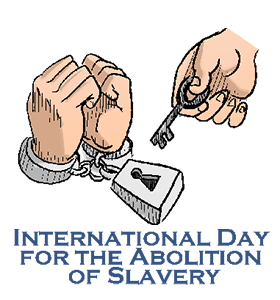International Day for the Abolition of Slavery
Quick Facts in Australia
| Hashtags | #ModernSlavery |
|---|---|
| 2025 Date | 2 December 2025 |
| 2026 Date | 2 December 2026 |
2025 Holidays & Dates - Australia
| Australian & Common Holidays | ||
| Misc. & Int'l. Observances | ||
| Christian Holidays | ||
| Jewish Holidays |
|
|
›
|
|
